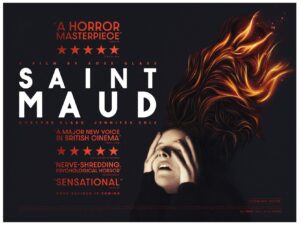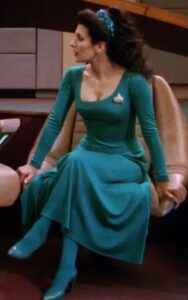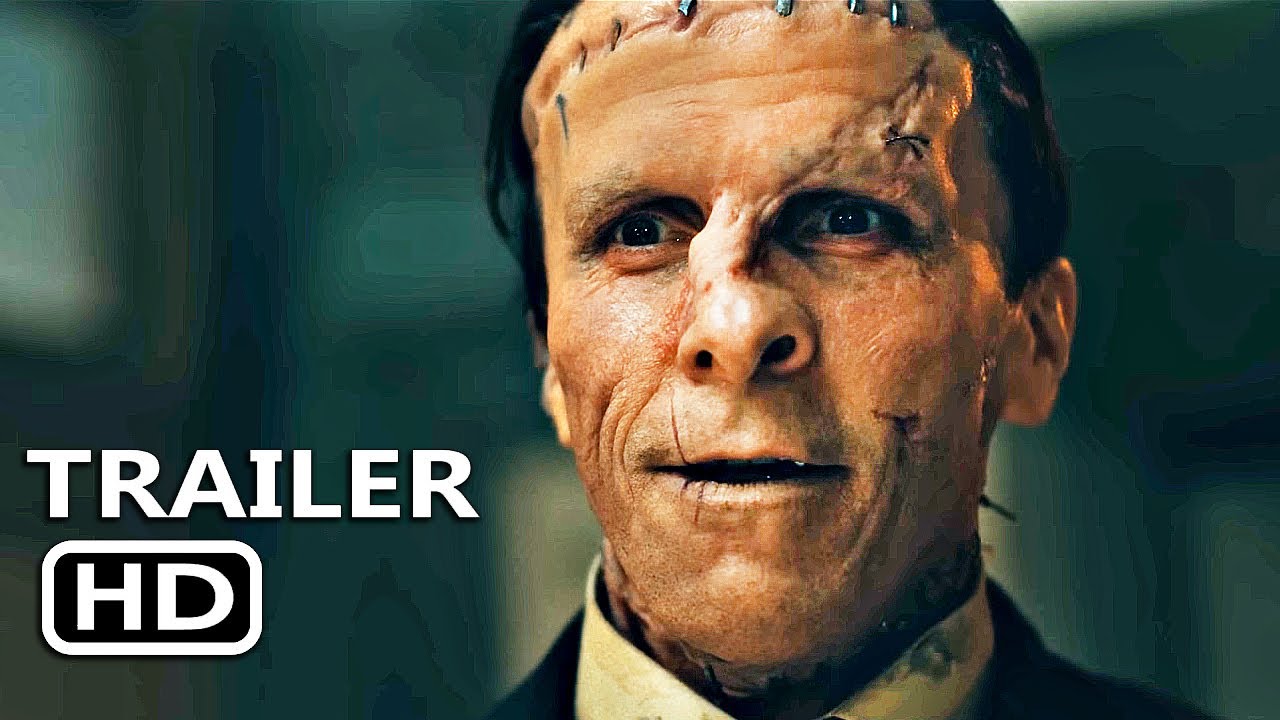.
I reviewed Saint Maud in 2021 when it became available on the Paramount+ streaming network, and you can find that review here. I enjoyed the feature, finding it compelling and a terrifying gaze into a broken mind. This rewatch was prompted by the podcast Random Number Generator Horror Podcast Number 9 when for this week’s show they rolled ‘religion’ as the scare and ‘2010s’ for the style and settled on Saint Maud as the subject that fit those parameters.
Saint Maud is the story of Maud (Morfydd Clark), a palliative caregiver, newly converted and deeply committed to her faith, convinced that God speaks to her through her physical pain and that he has some terribly important role for her to play in life. When she is assigned to a dying cancer patient, Amanda (Jennifer Ehle), Maud becomes convinced that saving this woman’s soul is that higher purpose.
Amanda, a dancer and author, is a woman far from the grace of traditional Christianity and a lesbian. She ends up mocking Maud’s faith, particularly when Maud intercedes with a sex worker Amanda has hired, trying to break off that relationship, setting the two women on a tragic collision course of fate.
Throughout the course of the film, we discover that Maud’s mind was shattered by a tragic and terrible event at the hospital where she once worked, causing the religious conversion and the adoption of this new identity. Maud’s miraculous interactions with God take place when she is isolated and alone, leaving the audience to decide if these are real or products of a deranged and damaged mind. (The very final shot of the film, I believe, settles that question.)
In 2021, Amazon’s The Lord of the Rings: The Rings of Power had not yet debuted, and I hadn’t seen Morfydd Clark in anything save Saint Maud. In this film, she plays an attractive woman who has transformed herself into someone very plain, eschewing overt attractiveness and sexuality. As Galadriel, she is glammed up, with all of the performer’s natural beauty enhanced, becoming nearly unworldly. It is a testament to what subtle make-up and costuming can achieve.
Does Saint Maud hold up?
Oh yes, I think it does. The cinematography by Ben Fordesman continues to impress with a very keen eye in using very shallow focus to give shots a subjective interiority that pulls you into Maud’s frame of mind. Rose Glass’ script and direction are just as powerful today in 2025 as they were in 2019 when the film was released. Saint Maud is not a story that is only supported by the culture and events of the time of its creation.
It is currently streaming on Amazon Prime.




